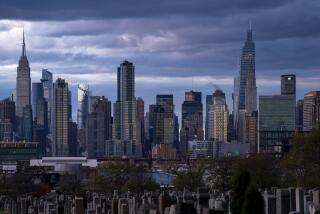Supreme Court to hear housing discrimination case
WASHINGTON — The Supreme Court reached out Monday to take up a politically volatile housing discrimination issue that the Obama administration had gone to great lengths to keep away from the court.
The justices voted to hear a New Jersey city’s appeal arguing it could not be held liable for housing discrimination in redeveloping a depressed neighborhood and reducing the number of homes that are available to African Americans and Latinos.
At issue is whether the Fair Housing Act forbids actions by cities or mortgage lenders that have a “discriminatory effect” on racial minorities.
Last year, the high court was set to decide that issue in a case from St. Paul, Minn.
But Justice Department civil rights chief Thomas E. Perez went to St. Paul and persuaded city officials to drop their appeal on the eve of the argument before the Supreme Court. He and other civil rights advocates feared a decision that would crimp enforcement of laws against housing discrimination, including in the area of mortgage lending.
Senate Republicans have sharply criticized Perez for his behind-the-scenes role in the St. Paul case and have cited it as reason for blocking his nomination to head the Labor Department.
The Supreme Court has never ruled on whether the Fair Housing Act extends to discrimination claims where there may be no proven intent to discriminate but rather a statistically demonstrated “discriminatory effect” or “disparate impact.” And the case from Mount Holly, N.J., raises just that issue.
The township, near Philadelphia, has a white majority, according to census data. The town council decided that one neighborhood of about 330 homes was “in need of redevelopment.” Known as Mount Holly Gardens, it was home to most of the town’s black and Latino residents.
The council voted to buy all the homes in the Gardens area for existing market prices ranging from $32,000 to $49,000. They were to be replaced with new homes whose prices would range from $200,000 to $250,000.
In 2008, a community group representing Gardens residents sued the city, arguing that the redevelopment plan was discriminatory and illegal because it would have a “disparate impact” on low-income African Americans and Latinos.
City officials said they were trying to improve a blighted part of town, not engage in illegal discrimination. But the U.S. appeals court in Philadelphia cleared the discrimination suit to go forward.
Last month, U.S. Solicitor Gen. Donald Verrilli Jr. advised the court to reject the city’s appeal, noting that all the appeals courts had permitted these “disparate impact” suits.
The Supreme Court said it would reconsider that question in the fall in the case of Township of Mount Holly vs. Mount Holly Gardens Citizens in Action.
More to Read
Start your day right
Sign up for Essential California for news, features and recommendations from the L.A. Times and beyond in your inbox six days a week.
You may occasionally receive promotional content from the Los Angeles Times.







